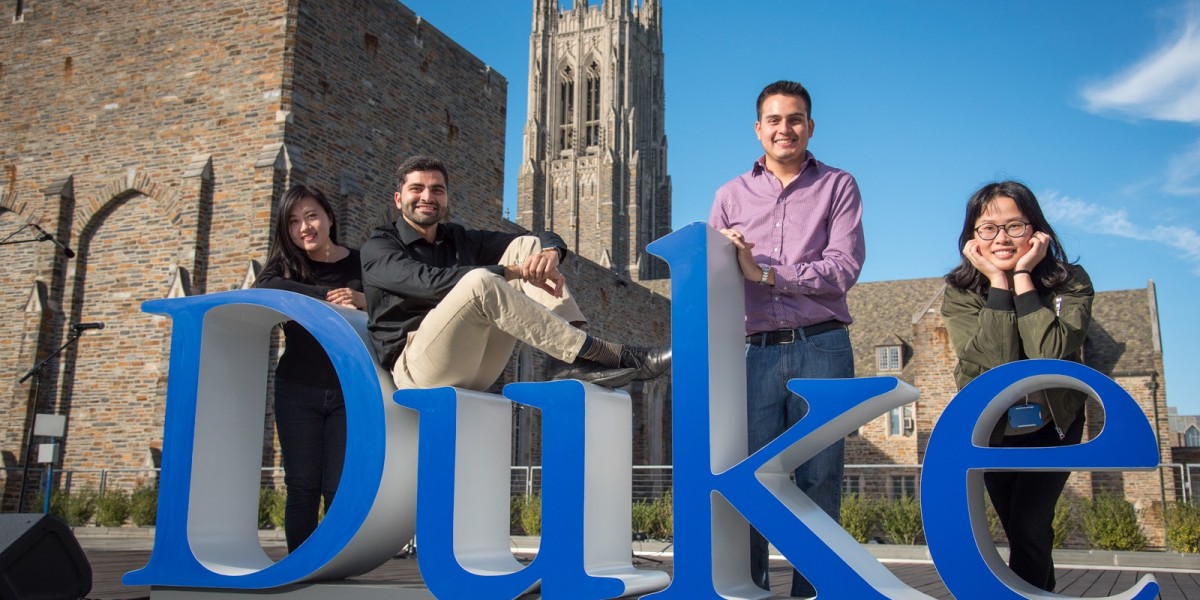Duke University, located in Durham, North Carolina, is one of the most prestigious and well-regarded universities in the United States. Founded in 1838, Duke has consistently ranked among the top universities globally, offering world-class education across various disciplines. Known for its commitment to academic excellence, innovative research, and diverse campus community, Duke University continues to shape the future of education, healthcare, and beyond.
History and Legacy of Duke University
Duke University's history dates back to 1838 when it was originally founded as Brown's Schoolhouse in the rural town of Randolph County, North Carolina. The university underwent a significant transformation in the early 20th century. In 1924, it was renamed Duke University after the philanthropic contributions of James Buchanan Duke, a wealthy industrialist and tobacco magnate. The Duke family’s generosity helped establish the university’s endowment, enabling it to flourish into the globally renowned institution it is today.
Over the years, Duke University has maintained a rich legacy of academic and athletic achievements. The university’s commitment to high-quality education, groundbreaking research, and a strong community atmosphere has contributed to its ever-growing reputation as a top-tier academic institution.
Academic Excellence at Duke University
Duke University offers a wide range of academic programs, with undergraduate, graduate, and professional degrees available. The university is home to numerous world-class schools, including the Trinity College of Arts & Sciences, the Pratt School of Engineering, the School of Medicine, and the School of Law. Each of these schools boasts high standards of academic excellence and fosters an environment of intellectual curiosity.
Duke University is renowned for its rigorous academic programs and dedicated faculty members. Students benefit from a combination of structured courses and opportunities for independent research and hands-on experience. The university also places a strong emphasis on interdisciplinary learning, encouraging students to explore diverse fields and develop a well-rounded education.
The university's commitment to research is evident in its research institutes and centers, such as the Duke Global Health Institute, the Duke Institute for Brain Sciences, and the Duke Energy Initiative. These centers provide students and faculty with access to cutting-edge research and allow for groundbreaking advancements in fields ranging from medicine to environmental sustainability.
Diversity and Inclusivity at Duke University
Duke University is deeply committed to fostering a diverse and inclusive community. The university welcomes students from all backgrounds, ethnicities, and walks of life, creating a dynamic environment that encourages the exchange of ideas and perspectives. The diverse student body contributes to an enriching academic experience and prepares students to become global leaders in their respective fields.
The university offers numerous resources and programs to promote inclusivity, including student organizations focused on diversity, multiculturalism, and social justice. Additionally, Duke's Office for Institutional Equity works to ensure a safe and supportive environment for all students, faculty, and staff, promoting a culture of respect and understanding across campus.
Duke University also strives to provide students with a global perspective. Through its study abroad programs, students have the opportunity to explore different cultures and gain international experience. This global mindset is further cultivated through the university's collaborations with universities and research institutions around the world.
Research and Innovation at Duke University
Duke University is at the forefront of innovation and research across a variety of fields. The university’s dedication to advancing knowledge is reflected in its extensive research output, groundbreaking discoveries, and contributions to society. Duke’s research initiatives span disciplines such as medicine, engineering, law, and the humanities.
The Duke University Medical Center is internationally recognized for its leadership in medical research and healthcare. It is one of the top medical research centers in the country, attracting leading researchers and healthcare professionals from around the world. Duke’s commitment to improving global health is also seen in its collaboration with the Duke Global Health Institute, which focuses on addressing health disparities and improving health outcomes worldwide.
In addition to medical research, Duke University is home to innovative projects in various other fields. The Pratt School of Engineering, for example, has made significant strides in fields like artificial intelligence, robotics, and energy. Students at Duke are encouraged to engage in hands-on learning and collaborate with faculty members on research projects, contributing to the university’s culture of innovation.
Campus Life and Extracurricular Activities
Duke University provides a vibrant campus life with a wide array of extracurricular activities for students. The university is home to numerous student organizations, clubs, and societies that cater to a variety of interests, from academic and professional pursuits to cultural and recreational activities.
The Duke Student Union is a central hub for student life, offering events, performances, and other opportunities for students to connect and engage with the community. The university also hosts several annual traditions and events, such as the famous “Duke-UNC rivalry,” which draws large crowds and creates a sense of camaraderie among students.
Additionally, Duke University boasts world-class athletic programs, with teams competing in the NCAA Division I Atlantic Coast Conference (ACC). The Blue Devils, as the athletic teams are known, have achieved significant success in various sports, including basketball, lacrosse, and soccer. The athletic culture at Duke University is an integral part of the student experience, with students showing passionate support for their teams.
Admissions and Financial Aid
Admission to Duke University is highly competitive, with an acceptance rate of approximately 7%. The university seeks to admit students who demonstrate academic excellence, intellectual curiosity, and a commitment to contributing to the campus community. Applicants are evaluated based on their academic achievements, extracurricular activities, essays, and recommendation letters.
Duke University is also committed to making higher education accessible to all qualified students, regardless of their financial background. The university offers need-blind admissions for U.S. students, meaning that an applicant's financial need will not affect their chances of admission. Additionally, Duke offers generous financial aid packages to ensure that students can afford a Duke education. The university’s financial aid program is based on a student’s demonstrated need, and Duke is committed to meeting 100% of each student’s demonstrated financial need through grants, scholarships, and other forms of financial assistance.
Conclusion
Duke University stands as one of the premier institutions of higher learning, offering an outstanding education that prepares students for success in a rapidly changing world. With its emphasis on academic excellence, innovative research, and a commitment to diversity and inclusion, Duke continues to shape the leaders of tomorrow. Whether in the classroom, in the laboratory, or on the athletic field, students at Duke are constantly challenged to push the boundaries of knowledge and contribute to society in meaningful ways. For those seeking a world-class education at a dynamic and supportive institution, Duke University remains a top choice for students from around the globe.
Naijamatta is a social networking site,
download Naijamatta from Google play store or visit www.naijamatta.com to register. You can post, comment, do voice and video call, join and open group, go live etc. Join Naijamatta family, the Green app.
Click To Download


